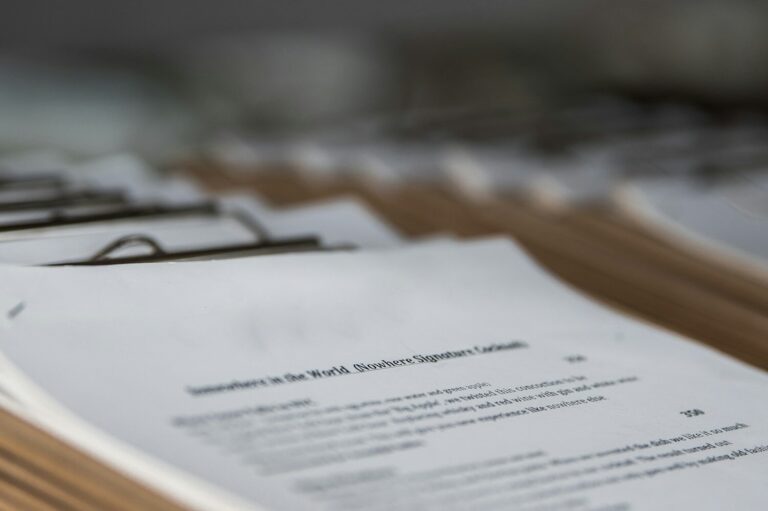Restrictive covenants are legal conditions that limit how land or property can be used. They are typically written into the title deeds of freehold property and are enforceable by law – even if they were made decades ago. For buyers, tenants and developers, understanding when these covenants can be enforced is essential to avoid costly disputes and planning errors.
In this article, we explore what restrictive covenants are, who can enforce them and when they are likely to be upheld in court. Whether you’re planning a development, changing how a property is used or simply trying to understand the terms of your land purchase, this guide will provide clarity on a complex area of property law.
What is a restrictive covenant?
A restrictive covenant is a type of agreement between landowners that places a limitation on the use of land or property. For example, a covenant might prohibit the construction of new buildings, restrict business activities or prevent external alterations to a property. These restrictions are typically imposed by the original seller of the land to protect the character or value of surrounding property.
Restrictive covenants ‘run with the land’, meaning they remain attached to the property even if ownership changes hands. They are enforceable against future owners, provided certain conditions are met – making them a key consideration in any commercial or residential property transaction.
Who can enforce a restrictive covenant?
Enforcement rights usually belong to the original beneficiary of the covenant – typically a neighbour, housing developer or landowner with adjoining property. If the benefit of the covenant has been passed down or assigned, successors in title may also have the legal right to enforce it.
However, proving who holds the benefit of a covenant can be complicated. Title deeds and land registry documents may not always be clear and in older covenants, the original beneficiary may no longer exist or be traceable. This can impact whether a covenant is enforceable in practice, even if it remains technically valid on paper.
Courts will consider several factors before confirming enforceability, including the original purpose of the covenant, how the land has been used over time and whether the person enforcing it has suffered any detriment.
Related: Buying a Property With a Restrictive Covenant: Risks & Advice
When is a restrictive covenant enforceable?
A restrictive covenant is more likely to be enforceable if it meets the following conditions:
- It protects the land or interest of the party seeking enforcement.
- The language of the covenant is clear and unambiguous.
- The covenant was intended to benefit the land and not merely the individual.
- There has been no significant change in the character of the land or surrounding area that would render the restriction obsolete.
Courts will also assess whether enforcing the covenant would be equitable or reasonable. For example, if the restriction no longer serves a useful purpose or is being used to unfairly block development, enforcement may be denied.
Can restrictive covenants expire or become unenforceable?
While restrictive covenants can technically last indefinitely, there are circumstances where they may cease to be enforceable. One of the most common reasons is a material change in the surrounding area. If the character of the land has changed significantly since the covenant was imposed – for example, if formerly rural land is now part of a dense residential area – a court may decide the covenant no longer serves its original purpose.
Another reason a covenant may fail is if the beneficiary cannot be identified or located. Without a clear party to enforce the covenant, it may be considered ineffective. Similarly, if the benefit of the covenant was not properly registered or transferred, a new landowner may lack legal standing to enforce it.
A long period of non-enforcement may also support a defence of waiver or acquiescence, especially if breaches have occurred previously without any objection. However, this is assessed case-by-case and the courts remain cautious about assuming covenants have been waived simply due to silence.
How are restrictive covenants challenged or removed?
If a restrictive covenant is causing difficulties – such as preventing a development or sale – it may be possible to discharge or modify it. This is typically done through an application to the Upper Tribunal (Lands Chamber), under section 84 of the Law of Property Act 1925.
The Tribunal can agree to remove or change a covenant if:
- The covenant is obsolete.
- It impedes reasonable use of the land.
- The beneficiary has agreed to modification.
- The proposed change will not cause substantial harm to others.
Applications must be carefully prepared and supported by evidence – including planning permissions, architectural plans and possibly expert reports. It’s a formal legal process and one that may take several months to complete. Therefore, it’s advisable to seek specialist legal advice before pursuing this route.
In some cases, covenants can also be negotiated privately. A deed of release may be agreed with the party who benefits from the covenant, in exchange for financial compensation or other terms.
Why legal advice matters with restrictive covenants
Restrictive covenants are legally binding and can pose major risks to property owners, investors and developers. A seemingly minor clause in a set of deeds can result in expensive litigation, stalled projects or the loss of value in a property.
Legal advice can help you:
- Identify whether covenants exist on your land.
- Assess the likelihood of enforcement.
- Negotiate releases or modifications.
- Respond to breach of covenant claims.
At Osbourne Pinner Solicitors, our commercial property team is experienced in dealing with restrictive covenants across a wide range of scenarios. Whether you’re buying, selling or developing property, we can help you navigate the legal complexities and protect your interests.
We offer a free 30-minute consultation to discuss your case – held remotely or at one of our offices in Harrow, Canary Wharf, Piccadilly Circus or Manchester. Contact us today via the form below, call 0203 983 5080 or email [email protected] to speak with a solicitor.




